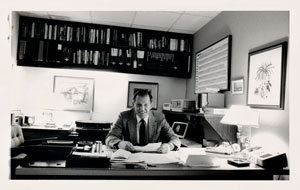I just read that Grinnell is eliminating student loans and replacing them with scholarships. As the parent of a soon-to-be college-age child, I applaud the school for leading the cause to reduce student debt. But this is not a new cause for Grinnell, which has always been incredibly generous with its financial packages and puts student need front and center. My experience in 1982 bears this out.
The summer before I was to return to Grinnell for my senior year (only my second year at Grinnell as a transfer student), with my father desperately ill, my mother let me know that there was no money for me to finish college. When I reached out to the school to say I would not be coming back, the person I spoke with immediately told me to return to campus and that the school would help me make it work. After I maxed out student loans and accepted a job on campus (at the wonderful preschool lab), Grinnell gave me the rest of my tuition and board in the form of a need-based scholarship. I truly believe my ability to graduate college came down to the care and generosity of the school. Thank you, thank you, Grinnell!

